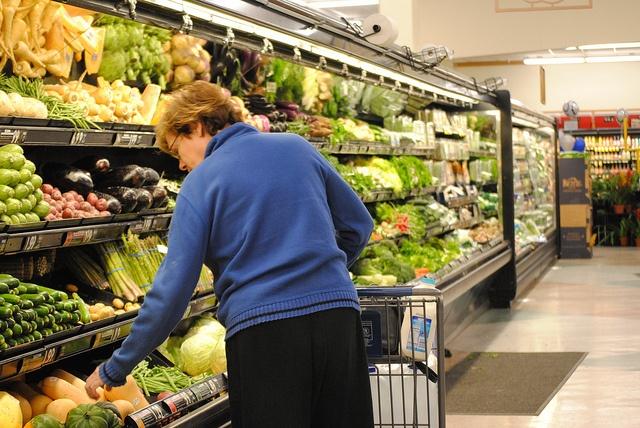
An estimated 1.3 billion tons of food is wasted each year, totaling $750 billion in economic losses, according to a 2013 report from the United Nations that analyzed loss of food around the world. France is looking to avoid such waste, becoming the first country to enact a law that bans grocery stores from wasting food.
The law, which France’s National Assembly unanimously passed last Thursday, calls on supermarkets 4,305 square feet or larger to sign food donation contracts with charities by next July or face fines of more than $80,000. The large grocery stores will also be banned from purposely bleaching and spoiling food to prevent scavengers from Dumpster-diving.
The ban is part of a greater initiative to cut the amount of food waste in France in half by 2025. According to officials, the average French citizen tosses 44 to 66 pounds of food a year, 15 pounds of which is still in its original wrapping. That waste is good for a national loss of a whopping $21.9 billion annually.
The law will also start education programs in schools and businesses to raise awareness about food waste. It stems from a measure to remove the best-by dates on fresh foods that came in February.
Supermarkets will also be required to separate the foods for charities so the donated goods are immediately ready to use. The charities won’t be responsible for rummaging through the food and finding what food is edible and what food is spoiled. Charities will now need to be equipped with fridges and trucks to handle the donations.
The bill will head to Senate after the lower house of Parliament votes on it next week.
According to the World Food Program, 805 million people in the world do not have enough food to lead a healthy, active life. The problem extends well past just the undeveloped countries. Approximately 1 in 7 households in America were food insecure in 2013, yet the U.S. wastes more than 35 million tons of food per year, an annual rate that has tripled since 1980.
The young bill has already faced criticism, with officials saying it was a mistake to target only large supermarkets because they account for just 5 percent of total food waste in France.
Food wasting isn’t only a hindrance to the millions of hungry people worldwide, but it also poses a massive threat to the environment. Discarded food is disposed in landfills, which release methane, a gas said to be more than 20 times more lethal than carbon dioxide. Food is the second largest contributor to the United States’ landfills, and landfills are the single greatest producer of methane emissions.
An estimated one third of global carbon emissions come from agriculture, and the livestock industry contributes more than 15 percent of global carbon emissions. Society can’t afford to have agriculture or livestock grazing come to a halt, but officials are doing their best to assure the food isn’t simply tossed in the wastebin.
Around the U.S., cities and charities have created initiatives to limit the amount of food waste. Austin, Texas, introduced an ordinance requiring large restaurants to separate compostable materials from other waste -- part of a goal to reduce the amount of waste the city sends to landfills by 90 percent by 2040. D.C. Central Kitchen is a posterchild for preventing food waste, using excess food to contribute nearly 2 million meals to the hungry.
France may be the first country to ban wasting for grocery stores, but it likely won’t be the last.
Image credit: Flickr/Anthony Albright
Based in Atlanta, GA, Grant is a nonprofit professional and freelance writer passionate about affordable housing and finding sustainable approaches to international development. A proud graduate of the University of Maryland, Grant spent four months post-grad living in Armenia where he worked for Habitat for Humanity and the World Food Programme. He enjoys playing trivia with friends but is still seeking his first victory - he ceaselessly blames his friends lack of preparation.














